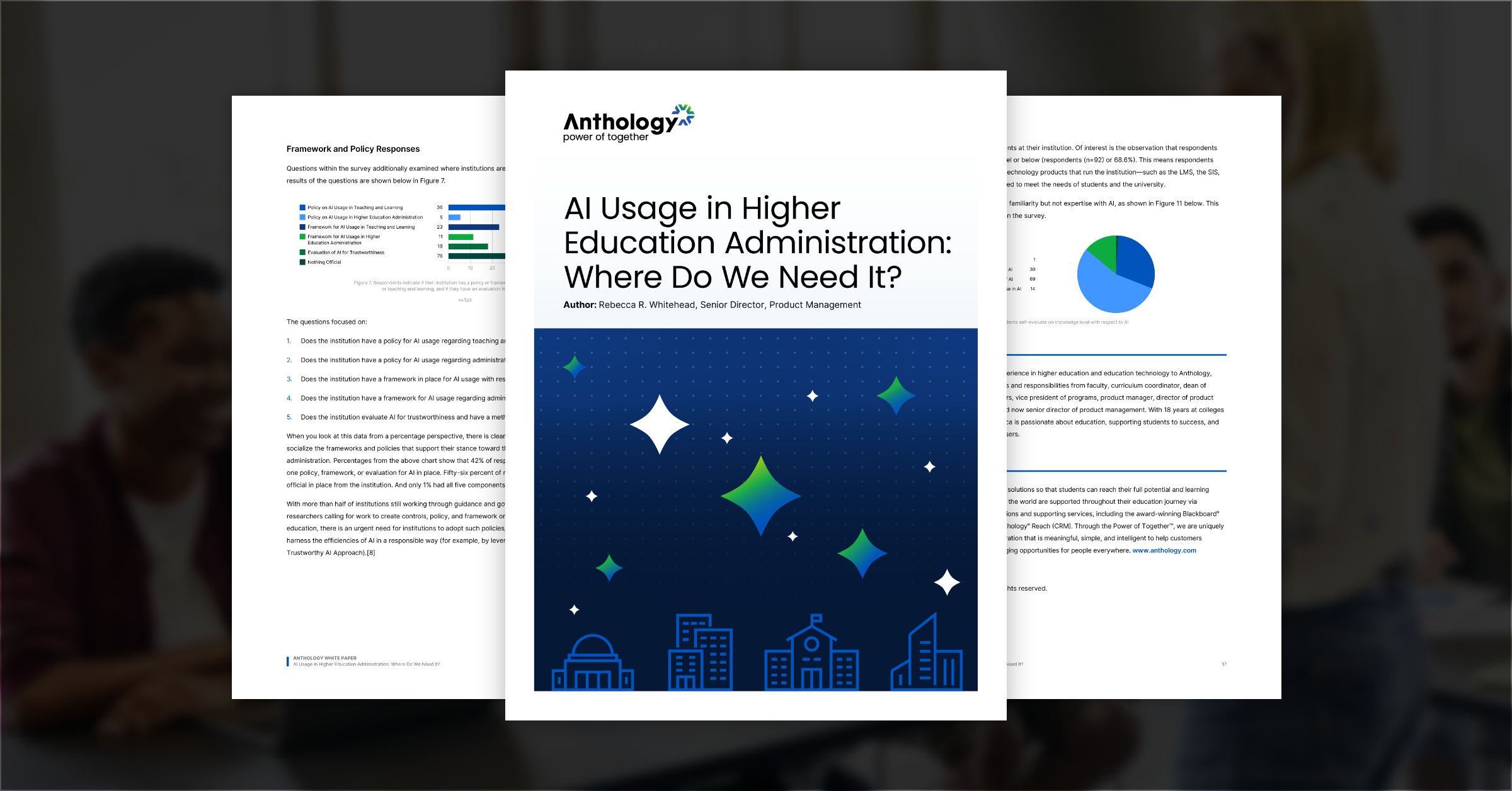
AI Usage in Higher Education Administration: Where Do We Need It?
Artificial Intelligence (AI) sometimes seems like it’s taking over the world. Not a day goes by when new applications or articles about the power or the risk of AI hit the news. Traditionally, education has run later than other industries in adopting new technologies, but AI—specifically generative AI—is making headway quickly into higher education. We’ve seen conversations, adoption, adaptation, and some rejection of generative AI in teaching and learning. Anthology has published other white papers about this phenomenon in higher education today, including “AI, Academic Integrity, and Authentic Assessment: An Ethical Path Forward for Education.”[1] While this technology is still new, all AI is figuratively knocking on the doors of every college and university and presenting itself as potentially useful to meet a variety of needs. These needs include but certainly are not limited to:
- Automating student communications where relevant and reserving humans for control and critical contact situations
- Automating assistance on learning materials to help students tackle difficult topics (automated tutoring assistants)
- Automating creation of learning materials to help faculty refine and optimize content (faculty assistants and instructional design assistance)
- Automation of business processes to reduce manual labor within the institution and to focus more effectively on meeting student needs
- Providing unfettered access to appropriate data with analysis for asking and answering institution-critical questions
With the rapid advancement of AI in mind, the question of how post-secondary staff, administrators, and faculty feel about the use of AI in higher education administration and how ready they are to adopt AI in meaningful ways is worth exploring.
This question led to the creation of the “AI Sentiment Use in Higher Education Administration Survey,” deployed in April 2024. The results of this survey are presented and discussed in this paper, with recommendations for future work and actions for institutions.